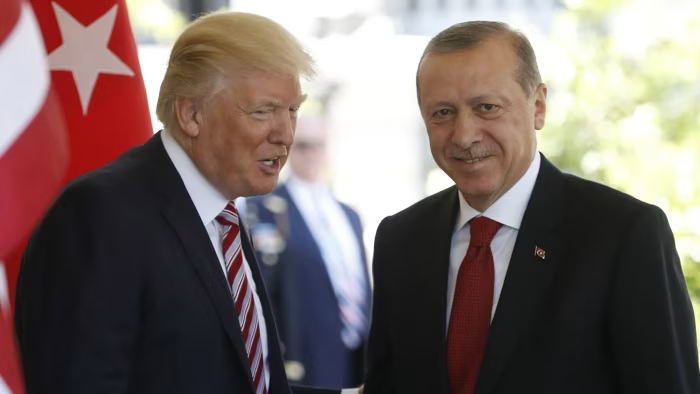WASHINGTON — US President Donald Trump announced Friday that Turkish President Recep Tayyip Erdoğan will visit the White House next week, in what may mark a turning point in ties between Ankara and Washington. The meeting is scheduled for Thursday, following their participation in the UN General Assembly in New York. The visit will be Erdoğan’s first bilateral trip to the White House since 2019, during Trump’s first term, after tensions mounted under the Biden administration over issues such as human rights and Turkey’s foreign policy.
One of the chief issues expected to dominate the talks is the long-standing dispute over military aircraft: Turkey’s purchase of the Russian S-400 missile defence system in 2017 led to its expulsion from the US F-35 programme. Trump, however, indicated optimism during his announcement, writing on Truth Social that work is underway on “many Trade and Military Deals,” including a major F-16 deal, significant Boeing purchases, and renewed discussions on F-35s. He expressed belief that these matters “will conclude positively.”
Erdoğan has previously claimed that he and Trump had reached an “agreement” on the state-of-the-art jets, and suggested that F-35 deliveries to Turkey would happen “step-by-step” during Trump’s current term. ([The Express Tribune][1]) Despite this progress, the relationship between the two leaders remains complex. Under Erdoğan’s rule, Turkey has increasingly cracked down on political opposition, including arrests of figures from the main opposition CHP party — moves critics view as eroding democratic norms. Trump’s decision to welcome Erdoğan, therefore, has drawn criticism from some US observers who harbour concerns over human rights.
Turkey’s foreign relations also remain a point of friction — its handling of the Syrian conflict, its position on Gaza, and its hosting of Hamas figures have all caused diplomatic tension with allies including Israel and the United States. Despite those controversies, Erdoğan’s close personal rapport with Trump appears to have helped smooth over certain bilateral disputes, making the upcoming White House visit particularly notable.
As both leaders prepare for their meeting, broader implications loom: restabilising US-Turkey relations could impact NATO cohesion, US influence in the Middle East, and arms sales and cooperation. Ankara’s reentry into the F-35 programme and potential deals for F-16s and Boeings could shift strategic balances. The White House visit therefore is being watched not only as a diplomatic gesture, but as a possible turning point for military and strategic alignments.












Leave a comment